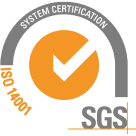آدرس دفتر شماره 1:
تبریز. میدان ساعت. ابتدای ارتش جنوبی. جنب بانک سپه و عینک نادر. ساختمان مقدم . دفتر ترجمه پوراسدی
آدرس دفتر شماره 2:
تبریز. ولیعصر. فلکه بازار. ساختمان حسینی. طبقه دوم. واحد D1
به اطلاع هموطنان عزیز می رسانیم که دفتر ترجمه با توجه به وضعیت موجود به صورت آنلاین به کار خود ادامه می دهد و پاسخگوی شما عزیزان می باشد
| شماره های تماس: | شماره های واتس اپ | شماره های تلگرام |
| (041) | 09302545105 | 09143065269 |
| 35567002 | 09143065269 | 09302545105 |
| 35549100 | 09302545035 | |
| 33271393 | ||
| 09143065269 | ||
| 09302545105 | ||
| 09142398018 | ||
| 09142377183 |
سلام دوباره خدمت عزیزان
امروز۷ آذر ماه سال 1399 خوشحالم از اینکه شما هستید و ما هستیم و بسیاری از انسانهای امیدوار و ناامید دیگر . امیدواران با کوششی مضاعف و نا امیدان برای یافتن روزنه ای از امید. از خدا برایتان آنچه را می خواهم که برایتان خوشبختی و سعادت و امید به ارمغان بیاورد.
امروز برایتان مطلبی از نگاهی نو به ترجمه برگزیده ام . مطلب خواندنی هستش و به نظرم حتی به یکبار مرورش هم می ارزد.
شاد و موفق باشید.
پوراسدی
From Global Villages into Globalization
One of the privileged assets of translation and TS is precisely that they reflect symbolic functions of communities in both their internal and external dynamics. In fact, the sudden interest in translation matters after WWII, at least in certain parts of the world, had obvious links with the intensification of internationalization. It has taken our planet a few decades to recognize the waves of Internationalization as a profound movement that even generated a new terminology (Globalization, to start with). However, Internationalization/Globalization has commonly been recognized as merely an economic and political phenomenon. Only recently, perhaps more or less around the beginning of the 21st century, has it become clear that technology and communication (and hence culture and communities) cannot be separated from economic changes2. Most of our contemporary universities claim to be fundamentally involved in the globalization movement and take the ranking race seriously. How this will ever be possible without changes in their local and internal landscape, especially their language policy – and not only in electronic publications – will sooner or later be (come) an issue for general management, both local and global.
The integration of universities and research into the new world of knowledge indeed confirms that more is at stake than a reshuffling of business worlds, or, in academic communities, that more is at stake than simply the dissemination of more texts along more channels in more languages. As far as languages, multilingualism and translation are concerned, the question will be whether only a few small departments will be affected, say literary studies, linguistics, perhaps history/historiography, or if there is an inherent link with sociology, economics, anthropology, medicine, etc.? And why would any research be needed: what would be the use of PhDs in TS (or rather: what would be the academic function and position of PhDs and research projects)? One fascinating answer to such questions has been delivered, both in academia and in international business, before the question of translation became an academic issue, i.e. the use of email and the Internet. Electronic communication channels have been planned within universities and multinational corporations (MNCs) without any real participation of translation experts, except perhaps to the extent that the first generation of Machine Translation (MT) experts has been partly recycled as experts in Localization, which means that they have been approached as a new Industry and service rather than as a new science. It is interesting to observe how particular MNCs have approached electronic communication, even MNCs with an internal translation department. It seems, however, that in most cases, neither translators nor translation teams have been involved. As a post-war Prime Minister said: “D’abord j’agis et puis je pense”.
Redefinition of neighbors
One of the paradoxes of universities is that they are so different: the world of knowledge does not have single identity. And it is not sure that the idea of Globalization has had any standardizing impact on the internal structures of many disciplines, except maybe a stronger awareness of planet-wide trends. The big disciplines such as engineering or medicine may tend to demonstrate the opposite. TS, however, as a new and still underdeveloped one (it is not visible in all universities) appears to be dispersed from both the synchronic and the diachronic perspective. Many universities link it with both linguistics and literary studies. It may also pop up somewhere in theology or biblical studies. The creation of a full department where PhDs are devoted to translation does not necessarily have an impact on “traditional” departments, where research on translation may simply continue. Although it is true that universities claim to support interdisciplinarity, the question is whether the actual academic map for research on translation reflects interdisciplinarity or para-interdisciplinarity. What has often been called the Birth of the Discipline, in historical terms, first illustrates chaotic trends: research on translation was in the hands of say (comparative) literary scholars on the one hand, and (applied) linguistics on the other hand, as has put it in several influential publications. But the technical (Translation Training (TT)) and the technological (MT or, in the best cases, Localization), had and still have a rather autonomous status somewhere between the other areas. During the years when Translation Theory was supposed to represent the entire field, i.e. until, say, 1975, it seemed utopian to work without (general) linguistics; currently, however, there are not many linguistics departments or handbooks that recognize translation and – much less TS – among their canonized subareas. The explicit and programmatic evolution into one common appellation (at least in English) and into the definition of norms in translation matters has considerably changed the picture, but since the circulation of scholarly communication has invaded the Internet, it is very questionable whether much more has been retained from the institutionalization than a name and a worldwide publication market. At least, after having disseminated via a broad group of smaller bi or multilingual countries (Israel, Czechoslovakia, Switzerland, Finland, Canada, Belgium, etc.) – not to speak about international organizations – and interaction between several disciplines, TS is now dynamic on five continents, including North and Latin America. This does not mean that translation scholars all recognize either TS as their home or the more or less unique map of the discipline as their Bible. It also does not mean that all areas and subareas of TS are booming.
Striking conflicts within the so-called discipline involve to the non-theorized split between TT and TS (which in fact goes back to the 1950’s) and systematic discussion of the research program established twenty years later. And whereas TT claimed to focus heavily (first of all?) on translation in business, this was – and still is – the area most lacking in research concepts.
This is why one of the priorities within TS in general, including TT, could be to learn from research on translation in neighboring disciplines, after having broadcast, of course, that neighbor disciplines might learn from TS.
So far we have hardly insisted on internal university structures as a shaper of the priorities and options of scholars. It may already be obvious, however, that the structuring of departments and their members is submitted to organizational principles that either promote or reduce given (interdisciplinary) options. To the extent that universities still heavily represent national traditions, especially in matters of language and culture, it would be amazing if a field like TS did not reflect particular traditions.

